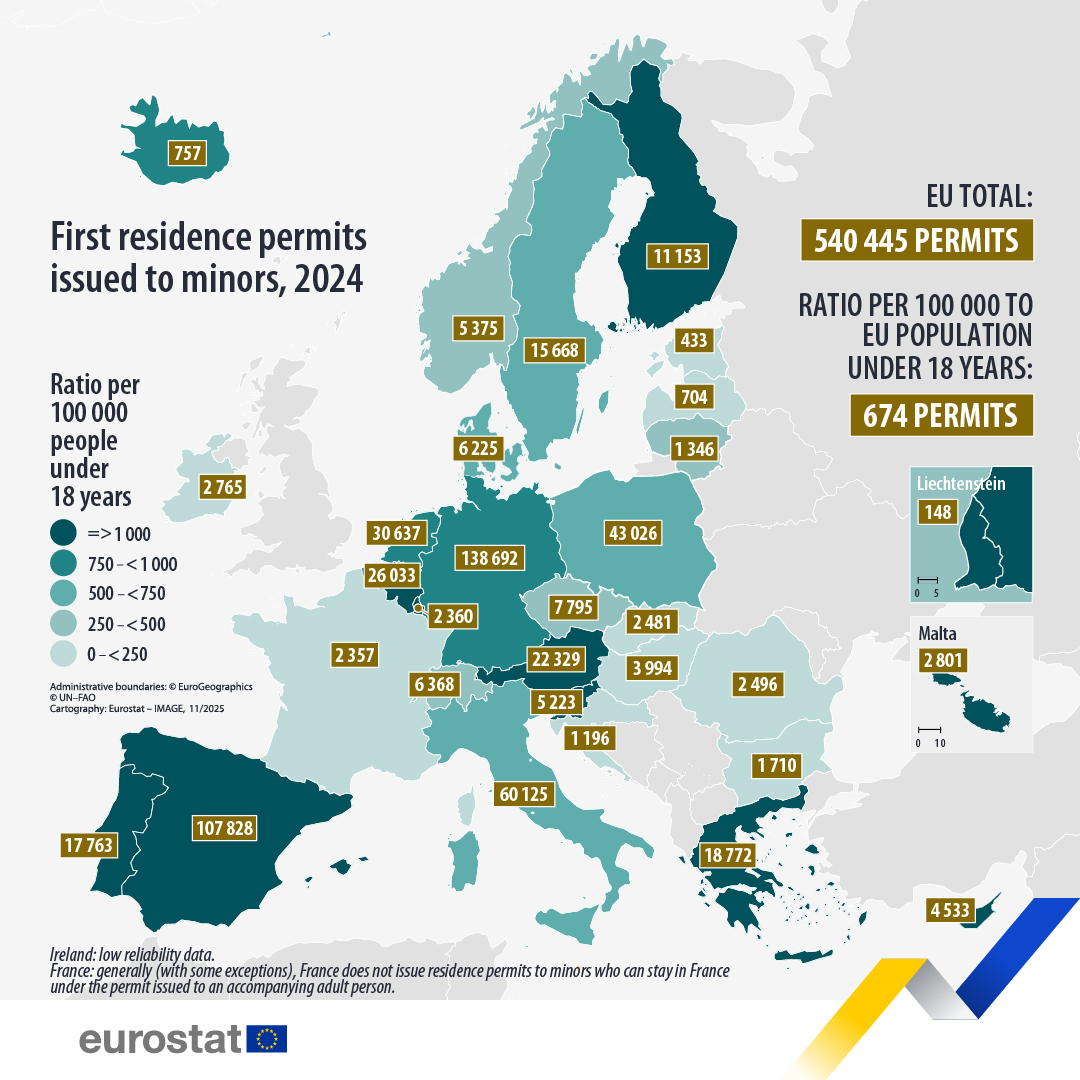Cyprus holds the second highest ratio in the European Union for issuing first residence permits to non-EU citizens under the age of 18, relative to its own child population, according to Eurostat.
The high ratio underscores the island’s position as a destination for international families, with Cyprus recording 2,584 permits per 100,000 population under 18 years of age.
This figure was surpassed only by Malta, which recorded 3,379, and was significantly higher than Luxembourg, which was third at 1,861.
In contrast, countries like Latvia, Croatia, Estonia, Bulgaria, and Romania all recorded a ratio of less than 200 first permits per 100,000.
Eurostat explained that France, which had the lowest value of 17 per 100,000, generally does not issue residence permits to minors.
Across the EU in 2024, a total of 540,445 first residence permits were issued to non-EU citizens under the age of 18.
The vast majority of these permits were granted for reasons related to family formation and reunification, which accounted for 356,554 permits or 66 per cent of all first residence permits issued to minors in the bloc.
Another 160,618 first permits, making up 30 per cent of the total, were issued to minors for other reasons, including international protection.
Meanwhile, education-related reasons accounted for the smallest share, with only 21,179 permits, or 4 per cent, being issued for this purpose.
In absolute terms, the EU countries which issued the highest number of first residence permits to minors were Germany, issuing 138,692, or 26 per cent of the EU total.
This was followed by Spain, at 107,828 permits, or 20 per cent, and Italy, which issued 60,125 permits, or 11 per cent.
Looking at the country of citizenship, Syria accounted for 12 per cent of the total number of first residence permits issued to minors in the EU.
Morocco followed at 7 per cent, and Ukraine at 6 per cent.
Overall, Asian country citizens accounted for the largest group, representing 37 per cent of minors granted a first residence permit.
They were followed by Europeans from non-EU countries, at 27 per cent, and citizens of an African country, at 21 per cent.
Caribbean, Central and South American citizens accounted for 11 per cent, while North American citizens represented 2 per cent.







Click here to change your cookie preferences